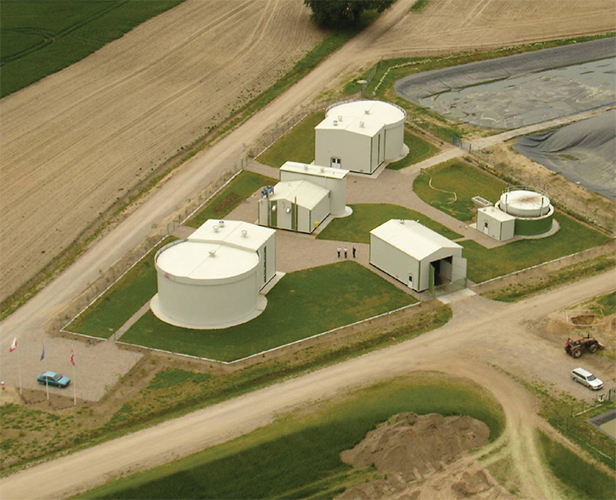
Prime Food
Meating expectations
Prime Food’s status as the second biggest company of its type in Poland is down to its high quality meat guarantee
Owned by Danish farmers Prime Food is a leading producer of superior raw and processed meat. Customers have increasingly favoured the company’s products as it has won recognition in the market for the quality of its fully traceable meat. Based in Przechlewo, Poland, its plant produces 650 tonnes of raw and processed meat every month and has export rights to EU countries as well as the US, Japan and South Korea.
“We started in Poland in 1994 after I, as a pig farmer in Denmark, initialised the operation,” explains founder Tom Axelgaard. “My aim was to contribute to the integration of Eastern and Western Europe after I discovered that companies wanted to establish themselves in the West. Other Danish farmers invested in the project and today 50 Danish farmers own Prime Food. We started with three state farms, 3500 hectares of land and £1 million supplied from our own pockets. Now we have 1000 employees, 17,500 sows and 17,000 hectares of land. Our slaughterhouse has a capacity of 12,000 pigs per week and food process lines for all kinds of sausage. We’ve had some excellent years developing the company, especially in terms of developing a highly qualified staff from previous state farm employees. We primarily serve Polish supermarkets, though our slaughterhouse is approved in several key countries so we can deliver wherever is most beneficial for us. We’re considering expanding to Japan because it is typically a high price market so we could supply high quality products for more money.”
Owing to the company’s success, the Danish investors have expanded to Ukraine with a second development. Tom says: “We’re building a slaughterhouse in Ukraine in 2008 and are currently in the initial stages of the project. Over the first four years it will be a £30 million investment. We began to get it off the ground two years ago by acquiring 8000 hectares of land, 400 staff and 3000 sows. Besides producing in Ukraine, our aim is to gain access to the huge Russian market where there’s a growing section of the population that enjoy high purchase power and choose better quality products. We’ll cater to the 50 million-strong Ukraine population but the purchase power is very low so there’s not as much room for high quality products compared with Russia.”
Classification of pigs is entirely automatic, without any human interference, using the most accurate device in the world. Tom elaborates further: “With AUTOFOM, pigs are scanned so different parts are shown in 3D measurements that add up to various numbers, which describe the quality of the different parts. We were the first company in Poland to use this five years ago and it allows us the possibility of separating the pigs into different categories on the basis of their cuts.”
The company exerts total control over production in order to guarantee the consumer a product of superior quality and origin. “Our product portfolio is mostly pig produce so we breed our own – 75 per cent of the pigs we’re slaughtering are ours,” says Tom. “For the rest, we only buy high quality pigs from suppliers and sell breeding material to local farmers so that they can improve their quality, which leads to a supply contract for the slaughterhouse later on. We’re proud of our philosophy of being in full control of production from soil to table and we were the first in the world to implement the HACCAP system throughout the entire production. We value traceability because customers are increasingly interested in knowing exactly how products are developed in respect of environment, feed and hygiene. We have salmonella controls in place on the farms and slaughterhouse with full traceability, so if there is a salmonella level that’s higher than normal we can go back to the exact farm to act immediately.”
The environment is a key concern for the company as it recognises consumers’ interest in supporting ‘green’ processes: “Carbon dioxide pollution and climate change is very topical and the public prefer companies that reduce pollution, therefore in Poland we’re building bio-gas plants on all our pig farms. Unlike other companies operating in our sector, we’re aiming to build 15 over the next three years to reduce methane gas emissions from production and utilise waste products from the slaughterhouse. We are focused on achieving positive results for the environment and business.”
Standing out from the majority of meat companies is essential to Prime Foods.
“In Poland, we’re further developing our products to differentiate the company from the bulk market and want to process the 500,000 pigs we slaughter annually into higher quality products. We have to utilise our advantages – traceability, control and high hygiene standards – to make specialised products for the customer who wants to pay that little bit extra for something very good,” he concludes.